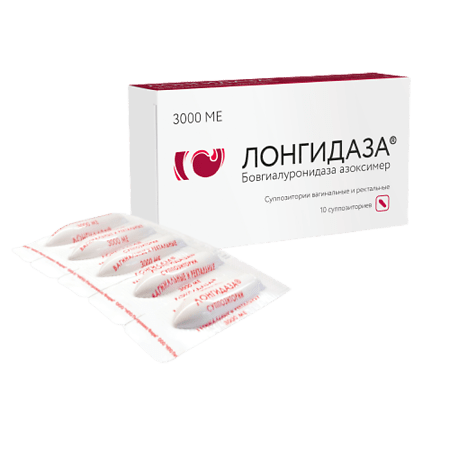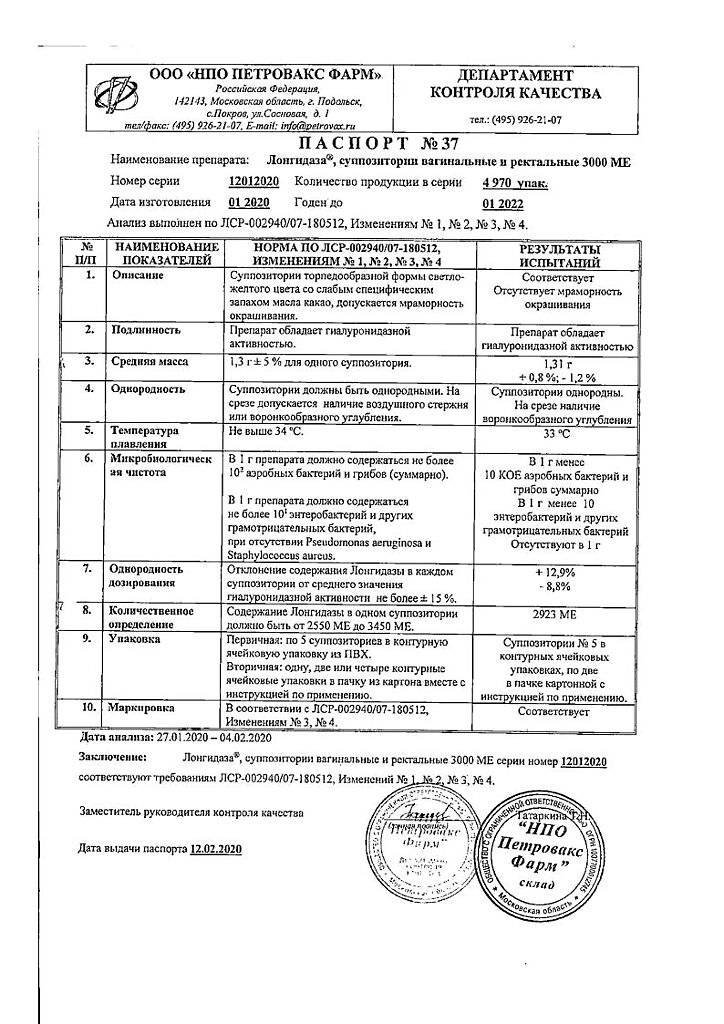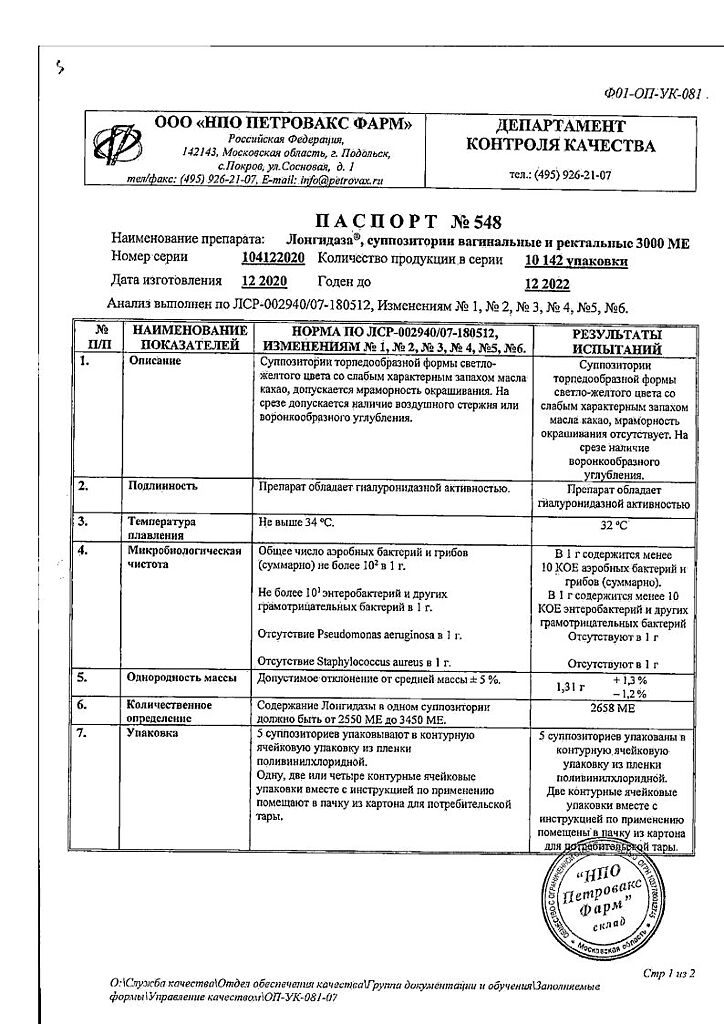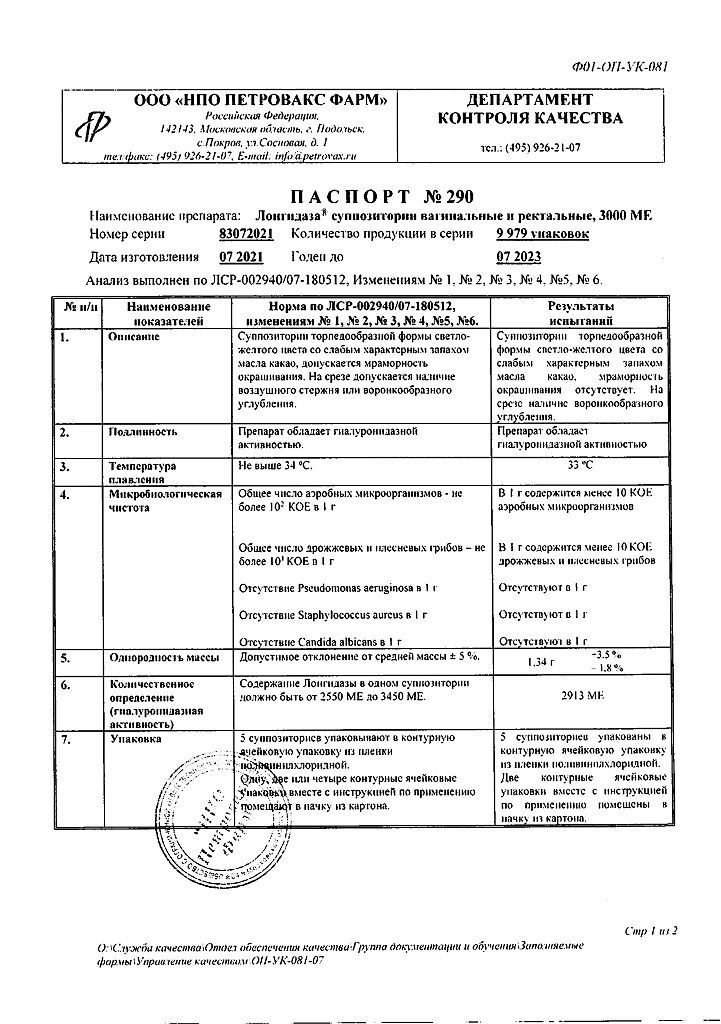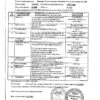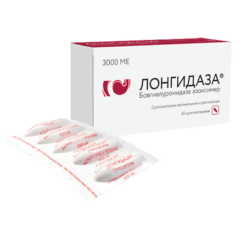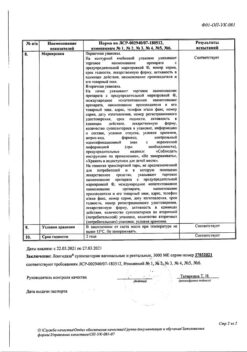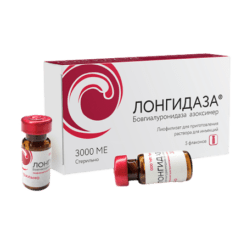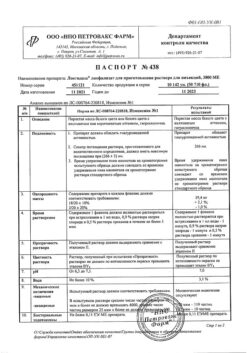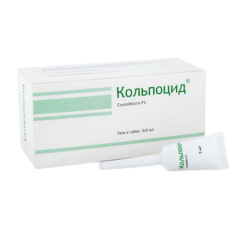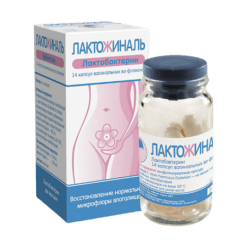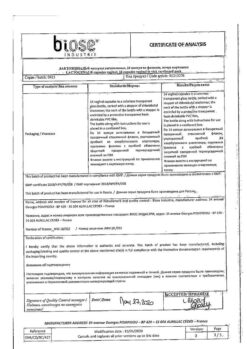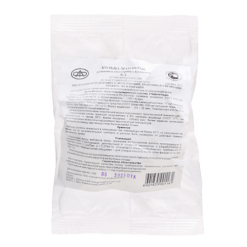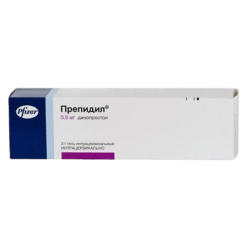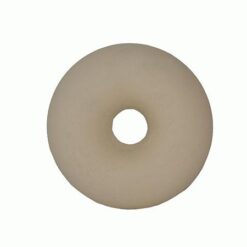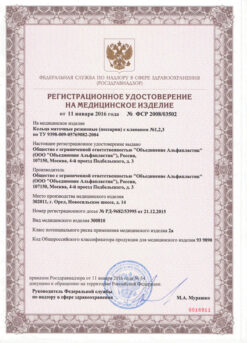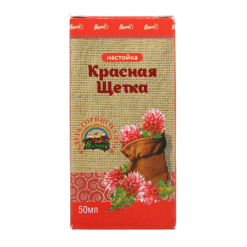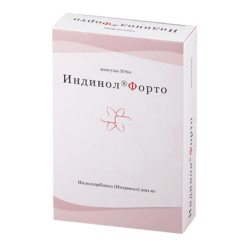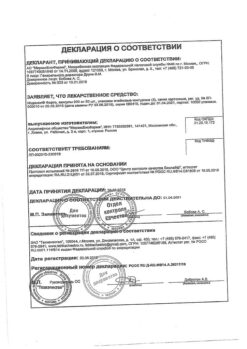No products in the cart.
Longidaza, vaginal and rectal suppositories 3000 me 10 pcs
€68.03 €66.27
Description
Longidaza is enzymatic, proteolytic.
Pharmacodynamics
Longidaza® has hyaluronidase (enzymatic proteolytic) activity with prolonged action, chelating, antioxidant, immunomodulatory and moderately pronounced anti-inflammatory properties.
The prolongation of the enzyme’s action is achieved through its covalent binding to a physiologically active high-molecular-weight carrier (activated derivative of N-oxide poly-1,4-ethylenpiperazine, analog of polyoxidonium) which has its own pharmacological activity. Longidaza® shows antifibrotic properties, weakens acute phase of inflammation, regulates (increases or decreases depending on the initial level) synthesis of inflammatory mediators (IL-1 and tumor necrosis factor-alpha), increases humoral immune response and resistance of the body to infection.
The pronounced antifibrotic properties of Longidaza® are provided by conjugation of hyaluronidase with the carrier, which significantly increases resistance of the enzyme to denaturing influences and to the action of inhibitors: the enzymatic activity of Longidase® is preserved when heated to 37°C for 20 days, while the native hyaluronidase in the same conditions loses its activity within a day. Longidaza® provides simultaneous local presence of the proteolytic enzyme hyaluronidase and a carrier, which can bind the enzyme inhibitors and stimulators of collagen synthesis (iron ions, copper ions, heparin, etc.) released during hydrolysis of matrix components. Due to these properties Longidase® has not only the ability to depolymerize the matrix of connective tissue in fibrotic-granulematous formations, but also suppresses the reverse regulatory reaction directed to the synthesis of components of connective tissue.
The specific substrate of testicular hyaluronidase is glycosaminoglycans (hyaluronic acid, chondroitin, chondroitin-4-sulfate, chondroitin-6-sulfate), which form the basis of the connective tissue matrix. As a result of depolymerization (breaking the bond between C1acetylglucosamine and C4 glucuronic or induronic acids) glycosaminoglycans change their basic properties: viscosity is reduced, the ability to bind water, metal ions is reduced, the permeability of tissue barriers is temporarily increased, the movement of fluid in the intercellular space is facilitated, the elasticity of connective tissue increases, which is manifested in a reduction of tissue swelling, flattening of scars, increased joint movement volume, reduction of contractures and prevention of their formation, reduction of adhesions.
Biochemical, immunological, histological and electron-microscopic investigations prove that Longidaza® does not damage the normal connective tissue, but causes destruction of the connective tissue altered in composition and structure in the area of fibrosis.
Longidaza® has no mutagenic, embryotoxic, teratogenic and carcinogenic effect.
The drug is well tolerated by patients, no local and general allergic reactions were noted.
The use of Longidaza® in therapeutic doses during or after surgical treatment does not cause deterioration of the course of postoperative period or progression of the infection; it does not slow down the recovery of bone tissue.
Indications
Indications
in urology: chronic prostatitis, interstitial cystitis, strictures of the urethra and ureters, Peyronie’s disease, the initial stage of benign prostatic hyperplasia, prevention of scar formation and strictures after surgical interventions on the urethra, bladder, ureters;
in gynecology: adhesions (prevention and treatment) in the pelvis in chronic inflammatory diseases of the internal genital organs after gynecological manipulations, incl. induced abortions, previous surgical interventions on the pelvic organs: intrauterine synechiae, tubo-peritoneal infertility, chronic endomyometritis;
in dermatovenerology: limited scleroderma, prevention of fibrous complications of sexually transmitted infections;
in surgery: prevention and treatment of adhesions after surgical interventions on the abdominal organs, long-term non-healing wounds;
in pulmonology and phthisiology: pneumofibrosis, siderosis, tuberculosis (cavernous fibrous, infiltrative, tuberculoma), interstitial pneumonia, fibrosing alveolitis, pleurisy;
to increase the bioavailability of antibacterial therapy in urology, gynecology, dermatovenereology, surgery, pulmonology.
Pharmacological effect
Pharmacological effect
Longidaza – enzymatic, proteolytic.
Pharmacodynamics
Longidase® has hyaluronidase (enzymatic proteolytic) activity of prolonged action, chelating, antioxidant, immunomodulatory and moderate anti-inflammatory properties.
Prolongation of the action of the enzyme is achieved by covalently binding it to a physiologically active high-molecular carrier (an activated derivative of poly-1,4-ethylenepiperazine N-oxide, an analogue of polyoxidonium), which has its own pharmacological activity. Longidase® exhibits antifibrotic properties, weakens the course of the acute phase of inflammation, regulates (increases or decreases depending on the initial level) the synthesis of inflammatory mediators (IL-1 and tumor necrosis factor-alpha), increases the humoral immune response and the body’s resistance to infection.
The pronounced antifibrotic properties of Longidase® are ensured by the conjugation of hyaluronidase with a carrier, which significantly increases the resistance of the enzyme to denaturing influences and the action of inhibitors: the enzymatic activity of Longidase® is maintained when heated to 37 °C for 20 days, while native hyaluronidase under the same conditions loses its activity within 24 hours. The Longidaza® preparation ensures the simultaneous local presence of the proteolytic enzyme hyaluronidase and a carrier capable of binding enzyme inhibitors released during hydrolysis of matrix components and stimulators of collagen synthesis (iron, copper ions, heparin, etc.). Thanks to these properties, Longidaza® not only has the ability to depolymerize the connective tissue matrix in fibrogranulomatous formations, but also suppress the reverse regulatory reaction aimed at the synthesis of connective tissue components.
The specific substrate of testicular hyaluronidase is glycosaminoglycans (hyaluronic acid, chondroitin, chondroitin-4-sulfate, chondroitin-6-sulfate), which form the basis of the connective tissue matrix. As a result of depolymerization (breaking the bond between C1 acetylglucosamine and C4 glucuronic or induronic acids), glycosaminoglycans change their basic properties: viscosity decreases, the ability to bind water and metal ions decreases, the permeability of tissue barriers temporarily increases, the movement of fluid in the intercellular space is facilitated, the elasticity of connective tissue increases, which is manifested in a decrease in tissue swelling, flattening of scars, increased range of motion of joints, reducing contractures and preventing their formation, reducing adhesions.
Biochemical, immunological, histological and electron microscopic studies have proven that Longidaza® does not damage normal connective tissue, but causes destruction of connective tissue altered in composition and structure in the area of fibrosis.
Longidaza® does not have mutagenic, embryotoxic, teratogenic or carcinogenic effects.
The drug was well tolerated by patients, no local or general allergic reactions were noted.
The use of Longidase® in therapeutic doses during or after surgical treatment does not cause worsening of the postoperative period or progression of the infectious process; does not slow down bone tissue recovery.
Special instructions
Special instructions
When used against the background of exacerbation of foci of infection, to prevent the spread of infection, prescribe under the guise of antimicrobial agents.
If an allergic reaction develops, use of Longidase should be stopped immediately.
Longidaza does not have a mutagenic or carcinogenic effect.
Use with caution and no more than once a week in patients with renal failure.
Active ingredient
Active ingredient
Bovhyaluronidase azoximer
Composition
Composition
1 suppository contains:
Active substance:
hyaluronidase conjugate with oxide copolymer,
1,4-ethylenepiperazine and (N-carboxymethyl)1,4-ethylenepiperazinium bromide 3000 IU;
Excipient:
cocoa butter – until a suppository weighing 1.3 g is obtained.
Pregnancy
Pregnancy
The drug is contraindicated for use during pregnancy.
Data on the safety of the drug during lactation are not provided.
Longidaza does not have embryotoxic or teratogenic effects.
Contraindications
Contraindications
increased individual sensitivity to drugs with hyaluronidase activity, Longidase®;
malignant neoplasms;
pregnancy (no clinical experience of use);
children under 12 years of age (efficacy and safety have not been studied).
With caution (use no more than once a week): renal failure; history of pulmonary hemorrhage.
Side Effects
Side Effects
Rarely – allergic reactions with increased individual sensitivity.
Interaction
Interaction
When using Longidase in patients receiving salicylates, cortisone, ACTH, estrogens or antihistamines in high doses, the effectiveness of the hyaluronidase enzyme may be reduced.
When prescribed in combination with other drugs, the possibility of increasing their absorption (bioavailability) and enhancing systemic action should be taken into account.
Storage conditions
Storage conditions
In a dry place, protected from light, at a temperature not exceeding 12 °C
Shelf life
Shelf life
2 years
Manufacturer
Manufacturer
NPO Petrovax Pharm, Russia
Additional information
| Shelf life | 2 years |
|---|---|
| Conditions of storage | In a dry, light-protected place at 8-15 °C |
| Manufacturer | NPO Petrovax Pharm, Russia |
| Medication form | Vaginal and rectal suppositories |
| Brand | NPO Petrovax Pharm |
Other forms…
Gynecology and Obstetrics
Related products
Gynecology and Obstetrics
Prepidil, intracervical gel 0.5 mg/3 g syringes with catheter
Buy Longidaza, vaginal and rectal suppositories 3000 me 10 pcs with delivery to USA, UK, Europe and over 120 other countries.

